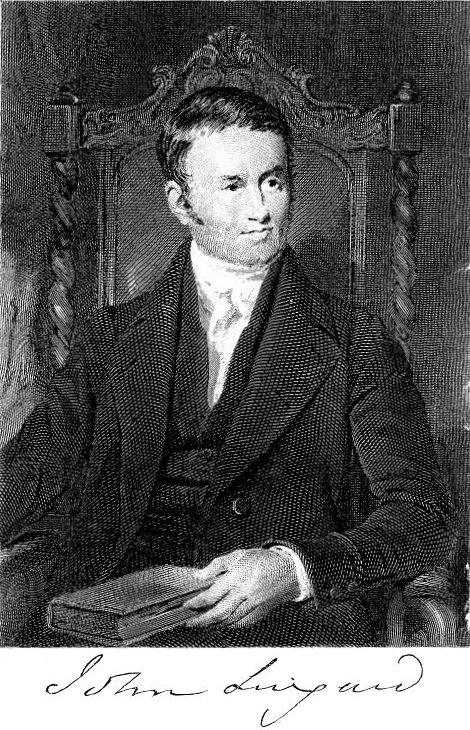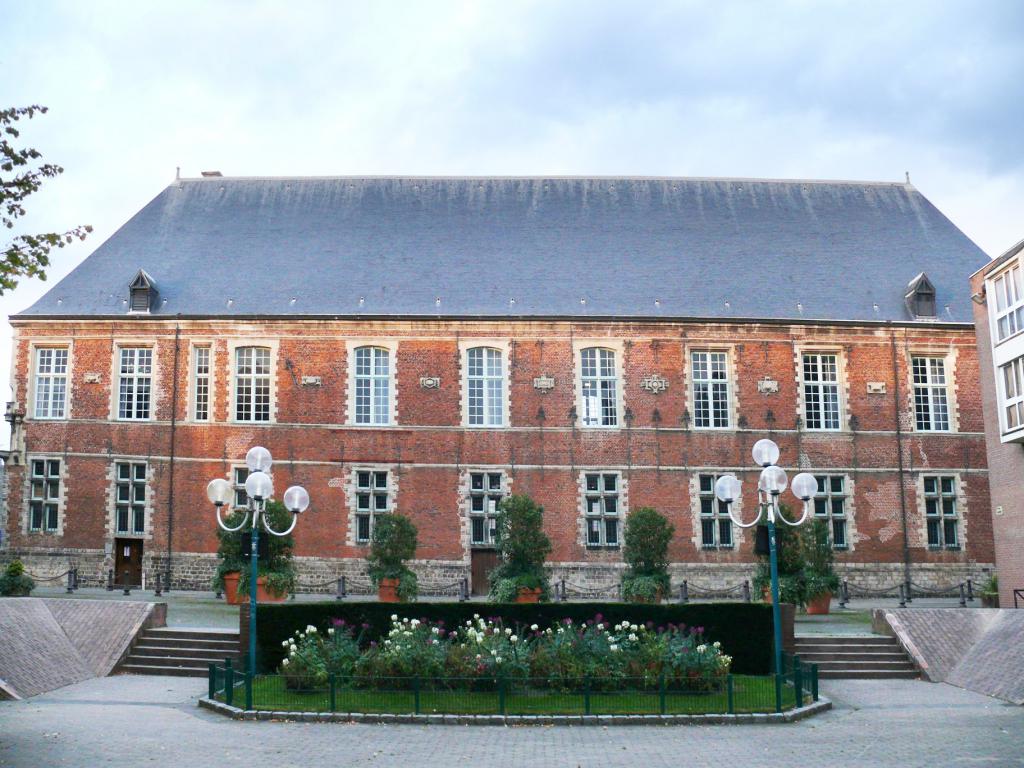In this second of two articles in the 450th anniversary year of the English College, Douai, Fr Nicholas Schofield continues the story of the College through turbulent wars and the French Revolution until its return to English shores.
The English College in Douai, established 450 years ago this year, managed to remain in France for over two centuries. On several occasions it had to be evacuated due to war or plague, including a short period in nearby Rheims, but it became a proud feature of that university town.

The 18th century saw ambitious plans for rebuilding, despite various financial worries, and new subjects introduced on the curriculum. Although often dismissed as an academic backwater, it produced a famous historian (John Lingard) and two Fellows of the Royal Society.
Then the Revolution hit France. At first, the staff and students thought it would escape unscathed since the college was ‘English’ and claimed exemption from revolutionary legislation. However, things began to hot up in 1791. The College printer was one of those lynched by a mob and hanged from a lamp post since he had ‘become obnoxious to the orators by the loyal tone of the press.’ Shortly afterwards some angry knocks were hear
d at the College door, which was opened by William Poynter, the Prefect of Studies and a future bishop. ‘Immediately,’ we are told, ‘four or five of the soldiers in a state of intoxication entered, and pushed forward through the porch and inner door into the corridor. They called out for the young men to be led out into the streets to go along with them.
Dr Poynter attempted to remonstrate, saying that the students were many of them in bed, and the rest were now retiring, and begged that they would not disturb them. “Where are your prisons? Open your prisons,” they exclaimed. “We have no prisons,” replied Dr Poynter, and would have added that the young men were free and happy, but the soldiers grew furious.’ In the end some of the students rushed into the streets with the soldiers crying, Vive la nation! Vive la liberté! It is unclear whether this was the boys’ rather bold initiative or whether they were forced to do so in order to save their skin.
Nevertheless, life continued pretty much as normal. Students sometimes chose to venture out prudently wearing the revolutionary cockade. As late as August 1792 new students arrived, including the great Irish ‘Liberator’, Daniel O’Connell. However, in January 1793 the situation was irrevocably altered by the declaration of war between France and Britain, following the execution of Louis XVI. Trickles of students began to return home. Soon armed guards arrived at the College; rooms were sealed. ‘The pretended motive of these proceedings’, reported one student, ‘was to put our property in security, as a storm, they said, seemed to be gathering against us from people of inferior conditions, among whom several rumours, unfavourable to us, had been spread.’
Despite the attentions of the ‘spiders’, as the guards were soon nicknamed, some of the more daring students decided to enter the sealed parts of the college and save some of the treasures. One clambered down a rope to save the more precious instruments (including early electrical devices) kept in the Physical Science Room; another climbed up a chimney to enter the President’s Room. Various valuables, including some of the college plate, were thus carried off by four boys and buried in a safe place. Relics, including the body of St John Southworth, the hair shirt of St Thomas Becket and the biretta of St Charles Borromeo, were hidden on the property itself and only rediscovered during building work in 1927. Most of the archive and library were lost for posterity, although another future bishop, Robert Gradwell, had the presence of mind to save the valuable Douai Diaries.
The community was first removed in August 1793 to the relative peace of their country house at Equerchin; the allies had recently captured nearby Valenciennes and an attack on Douai was thought imminent. Finally, on 12th October the Collegians were told to move to the Scots College in Douai, where sleeping accommodation was hurriedly provided in the refectory; space was at a premium since several suspected French aristocrats were also being held there. Poynter wrote that, in the meantime, ‘the doors [of the English College] were thrown open for three days, during which part of the furniture was sold, and the rest of the goods that could easily be moved and carried off was plundered by the mob.’
A few days later they were moved to the Citadelle at Doullens in Picardy. In the course of the two-day journey several students managed to escape. At Doullens, the Collegians were joined by six English Benedictines from
St Gregory’s, Douai (a community that later settled at Downside). The stories told by the ‘Confessors of Doullens’ quickly passed into College lore. There were, for instance, heroic escapes. Since Doullens lay in a different diocese to Douai, the priests lacked faculties to hear Confession. In November 1793 a party of four students climbed down a rope fixed at the top of the castle wall and disappeared into the night to apply for the appropriate documentation from the bishop of Amiens. This arrived in time for the Christmas celebrations.
Conditions were harsh. Richard Thompson compared the first night, without mattresses, to sleeping in ‘a black hole’ but added that ‘never, I am persuaded, did either our superiors or the boys pass a more merry and sportful night at Equerchin.’ The following day they were moved to a larger, wind-exposed garret, although conditions were still cramped and the food insufficient. A window was unhinged and placed horizontally, so that Mass could be discreetly celebrated.
In May 1794 a large group of new prisoners arrived at Doullens, including members of the English College, St Omers, much to the Douai collegians’ delight, and the French guards were reportedly astonished by the daily games of Leap-frog and (appropriately enough) Prisoners’ Base. All this time, petitions were sent to the authorities in the hope that the prisoners would be allowed to return home. Eventually the permission was given; the
St Omerians were released in October 1794 and left the prison singing the psalm In exitu Israel de Ægypto. Shortly afterwards, on 24th November, it was the turn of the remaining Trente-deux, as they came to be called: the six Benedictines and 26 from the English College.
On their release, they were kept for several months at the Irish College, Douai. The regime was comparatively relaxed and in December the students were even given permission to go skating, that peculiarly English pastime. Several students tried to visit their old College, now a military hospital. They must have been shocked to find the sacristy being used as latrines and the church and refectory as storage space for bedding and linens.
The President of the English College, St Omer, Gregory Stapleton went to Paris to negotiate the prisoners’ release and the issuing of passports so that they could return home. On 13th February 1795 he arrived triumphantly at Douai and uttered the long-remembered words: ‘Good news, my boys. Thank God, we are going to England.’ One of those present later recalled, ‘I believe we never in the whole course of our lives experienced such lively emotions of joy; many of the collegians gave loud cheers of applause.’ Soon afterwards they crossed from Calais to Dover on an American ship. After 18 months of danger and imprisonment, they had reached safety at last, and the rich traditions of Douai were continued at Ushaw in the north and St Edmund’s College, Ware, and Allen Hall in the south.
The first article in this series, From Douai to Allen Hall, is available here.




